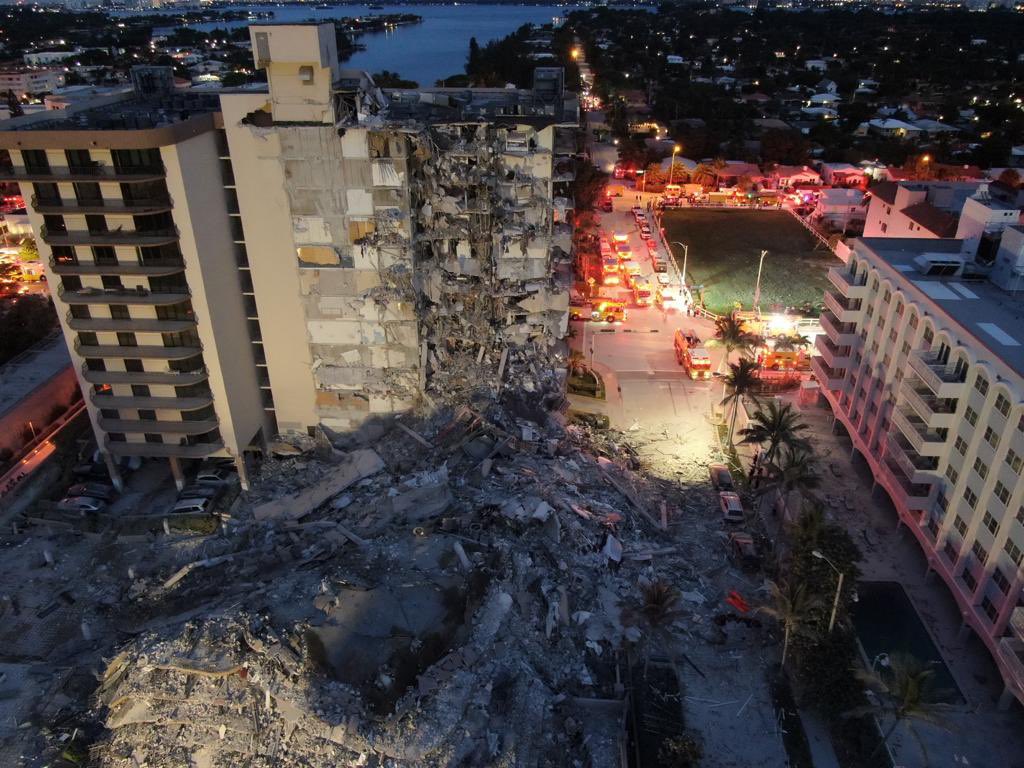
We all probably remember the June 2021 tragic collapse of the twelve-story, oceanfront condominium, Champlain Towers, in the Miami suburb of Surfside Florida. Ninety-eight people were killed in the building’s collapse.
While the collapse was allegedly triggered by heavy ground vibrations from the construction site next door, the Champlain Towers was an accident waiting to happen. Reports claim the building was improperly designed, poorly constructed, significantly underfunded, and inadequately maintained and repaired.
In the wake of this tragedy, Fannie Mae and Freddie Mac (the two national entities that set underwriting guidelines for all mortgage lenders) have released new and more robust requirements to ensure condo and coop buildings are safe for borrowers AND lenders. Mortgage lenders are now required to evaluate the condition of buildings prior to a mortgage being approved. Detailed records regarding repairs, maintenance history, and plans for future maintenance must be documented. Lenders must now verify that the infrastructure is being maintained and replaced as necessary. Plus, these projects must verify they have more robust cash reserves sufficient enough to pay for future work. Fannie and Freddie will no longer purchase loans on condo and coop buildings in need of major repairs, advanced deterioration, and even significant deferred maintenance.
To further emphasize how seriously they are taking this issue, Fannie Mae has issued a list of condominium projects throughout the country now deemed ineligible for Fannie and Freddie backed loans due to their varying states of disrepair. There are currently 950 projects on this list. And the list is growing.
Most projects should comply with these new requirements. However, its estimated that between 5% to 10% of projects will need relatively minor repair work to become compliant, whereas another 5% to 10% of projects are catastrophically underfunded and poorly maintained.
While not all mortgages must follow Fannie and Freddie guidelines, even non-QM and non-warrantable condo lenders are aligning themselves to these same requirements.
What does this mean to prospective buyers AND current owners of condos and coops?
The emergence of this list is sure to send shockwaves to current condo and coop owners who may not be aware of the level of disrepair in their project. For them, they are in for a rude awakening. Projects may be forced to significantly increase their monthly common charges to ensure they have funds for these repairs and cash reserves. Many owners who are financial insecure are likely to default on their common charges, thus exacerbating the project’s financial issues. Values will plummet and some communities may go bankrupt or into foreclosure.
For buyers, obtaining financing on condo and coop units will now be more difficult, with more documentation and analysis needed. Buyers should be prepared to exercise more due diligence before going to contract.
If you’re in need of guidance on this issue, please contact me in my office.
__
Warren Goldberg is President of Mortgage Wealth Advisors, a Certified Mortgage Planning Specialist®, and a published author. His interviews include Blog-Talk Radio, Newsday, The Daily News, Anton Press, and the Long Island Herald. Since 1992, he’s been sharing his financial knowledge and wealth-building strategies, including how to properly use your mortgage as a financial tool. His clients regularly express their trust and appreciation by recommending friends and family call when in need of mortgage, real estate, and financial guidance.

[…] For a more detailed explanation, read, “Big Changes in the Availability of Condo and Coop Financing!” […]